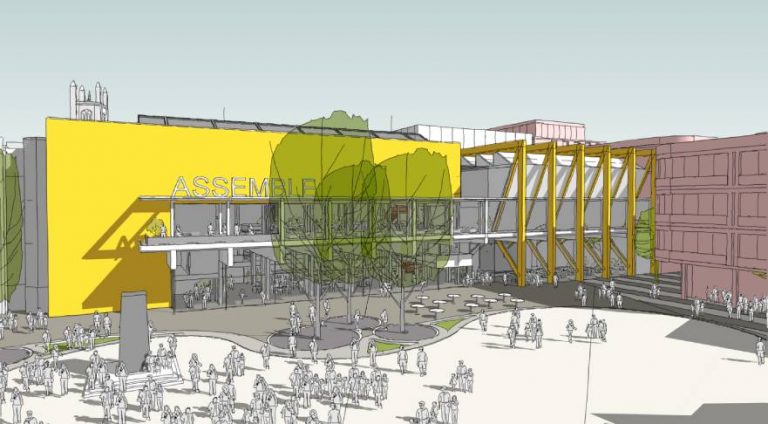Ibstock sees resilient final quarter
Dunelm reports strong second quarter
Homewares retailer, Dunelm, has reported a “strong performance” in its second quarter.
According to an update on trading for the 13-week period ended 31 December 2022, total sales of £478m were 18% higher than the same period last year and up 48% compared to three years ago, pre-pandemic.
Dunelm says this performance reflects a strong quarter in which Autumn and Winter product ranges proved particularly popular with customers. The company saw broad based growth across its categories and its Christmas offer sold well. Customers seeking ways to mitigate higher heating costs also found value in Dunelm’s ‘Winter Warm’ assortment, as well as in products such as heated indoor airers.
The Leicestershire firm expects full year profit before tax to be above current market expectations.Nick Wilkinson, Chief Executive Officer, said: “We have delivered another strong performance and the relevance of Dunelm’s value offering has really come to the fore. Customers have enjoyed shopping our ‘Winter Warm’ ranges as they find innovative ways to manage rising heating costs. Our Christmas assortment also proved popular as customers prepared their homes for the festive period.
“It is a difficult time for many people in our communities, so we were delighted to significantly grow our ‘delivering joy’ campaign this year, resulting in over 60,000 Christmas gifts being donated by customers and colleagues to local causes.
“We are deeply conscious of the challenges which everyone is facing and remain focussed on making every pound count across our entire offer, so customers can feel confident in receiving outstanding value whatever their budget or taste.”
Operational issues at distribution centre see Dr. Martens predict EBITDA dip
Derby tech business attains B Corp status
Orderly, a technology business based in Derby with a focus on artificial intelligence to boost supply chain social responsibility and sustainability, has achieved the coveted B Corp certification.
Orderly now join the ranks of over 4,000 companies who are using business as a force for good.
The B Corp was established in 2006 and is the first and only certification for businesses that meet the highest standards of social and environmental performance, public transparency, and legal accountability.
To become B Corp Certified, a business must complete an in-depth assessment administered by the non-profit B Lab.
Orderly staff had to fill out a lengthy assessment (over 200 questions) that looked at every aspect of the business – from its environmental impact, to how the company treats its employees, to the diversity of the team.
This was followed by a phone review by B Lab staff to clarify points, while requests were then made for documentation of key points.
Orderly CEO Peter Evans, said: “When we heard about B Corp Certification, it felt like the perfect fit. It’s taken us almost three years of incremental change to gain the certification and has been a huge team effort. Getting certified is certainly a challenge – but well worth it.”
This is just the start, added Peter: “Becoming B Corp Certified is just the beginning. By stipulating that companies must ‘set improvement goals against the most-up-to-date standards and benchmark their performance over time’ that ensures that we are constantly striving to improve and be the best that we can be – which of course, every business should be.
“We have big plans for the future including developing our world-first digital store assistant technology, and we are excited to continue our journey as a sustainable and ethical business – with that exciting new B Corp Certified logo joining us for the ride.”
Derby hotel acquired
Derby secures Levelling Up funding to push forward Assembly Rooms site plans
2023 Business Predictions: Dave Atkinson, regional director for the East Midlands at Lloyds Bank Commercial Banking
2023 Business Predictions: Elliot Cook, director at Simple Marketing Consultancy
BGF continues to power the Midlands growth economy in 2022
Corporate insolvencies continue to soar
Corporate insolvencies are continuing to hit a year-on-year high, with a perfect storm of economic turmoil and increasing numbers of creditors pursuing debts pressurising company directors into closing their businesses voluntarily.
This is according to the Midlands branch of insolvency and restructuring body R3 and follows monthly statistics published this week by the Insolvency Service which show that corporate insolvencies in England and Wales increased by 32% last month (December 2022) to 1,964 compared to December 2021 (1,489), and by 76% in comparison to December 2019 (1,119), prior to the outbreak of the pandemic.
R3 Midlands chair Eddie Williams, a partner at PwC in the East Midlands, said: “The monthly corporate insolvency figures have increased compared to last year and three years ago due to rises in Creditor Voluntary Liquidations and Compulsory Liquidations.
“This means that many company directors are choosing to close their businesses, no longer willing to combat insurmountable economic challenges such as low consumer confidence, rising costs and requests for increased wages. Changes to legislation have also given greater powers to creditors to recover monies owed to them, contributing to a rise in the number of companies in compulsory liquidation.
“The beginning of the year is a critical period for many companies, and R3 urges anyone who is anxious about their business or personal finances to seek advice as soon as possible. While it is incredibly hard to voice financial fears, having that conversation with a qualified advisor as soon as problems arise could lead to better outcomes than waiting until they become more severe.
“Most R3 members will give an hour’s free consultation to potential clients to enable them to understand more about the circumstances of the business, and to outline the options available to help them improve their situation.”












